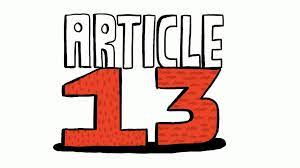There are three doctrines formulated in view of the provisions enshrined in Article 13 of the Indian Constitution.
1. Doctrine of Severability
2. Doctrine of Eclipse
3. Doctrine of Waiver
Doctrine of Severability
The expression ‘Severability’ literally means “Seperation”. Article 13 of the Constitution uses the words “to the extent of such inconsistency be void”. For the purpose of Article 13 of the Indian Constitution, it means to separate the valid portion of the law from the invalid portion where the Act or legislation contains both the void and valid provisions.
The main object of the act is to retain the Act or legislation in force by disregarding or deleting the void provisions. Offending provisions can be separated from that which is unconstitutional. That part is declared void and not the entire statute.
In A.K. Gopalan V State of Madras, The Supreme Court declared Section 14 of the Preventive Detention Act, 1950 as ultra vires on the ground that it is violative of the fundamental rights guaranteed under Article 22 of the Constitution. The court seperatedthis part from from the Act and declared the Act valid without Section 14.
Doctrine of Eclipse
The term ‘eclipse’ literally means “to hide wholly or in part”. This doctrine is based on the principle that a law which violates Fundamental Rights is not nullity or void ab initio but becomes only enforceable. Such statute or law shall not be wiped out totally from the Statute Book.
It cannot be declared void/dead unless it is abolished by the parliament and shall be treated as sleepy.
Note – It is only as against the citizens that they remain unenforceable but they remain in operation as against non – citizens who are not entitled to fundamental rights.
In BhikajiNarainDhakras V State of M.P AIR 1955Sc 781, the Supreme Court held that any existing law inconsistent with the Fundamental Rights, which becomes inoperative from the date of constitution is not dead totally. It is only overshadowed by the fundamental right.
In Deep Chand V State of U.P AIR 1959 SC 648 – The Supreme Court held that the Doctrine of Eclipse does not apply to post constitutional laws and therefore a subsequent constitutional amendment cannot revive it.
However, in exceptional cases the doctrine of eclipse may be applied to post constitutional law. In State of Gujarat V Ambica Mills AIR 1974 SC 1300, Such laws will be void and ineffective only against citizens but will be valid against non citizens as only citizens have the fundamental rights.
Doctrine of Waiver
According to the doctrine of waiver, a person who is entitled to any right or privilege can waive off such a privilege, if he does so together with his discretion. The doctrine of waiver speaks about the voluntary relinquishment or abandonment of an existing legal right or privilege.
The doctrine of waiver has no application to the provision of law enshrined in Part III of the constitution. Therefore an individual or citizen cannot waive his fundamental rights. In other words the doctrine of waiver is not applicable to the fundamental rights.
In Muthaiah V IT Commissioner, AIR 1956 SC 269, The respondents had contended that the petitioner by voluntarily entering into an agreement had waived his fundamental right guaranteed under Article 14. The supyreme Court rejected the contention of the respondents and held that fundamental rights could not be waived.
In Olga Tellis V Bombay Corporation AIR 1986 SC 180, It was observed that there cannot be estoppels against the constitution and therefore a person cannot be treated to have waived any of the fundamental rights.



